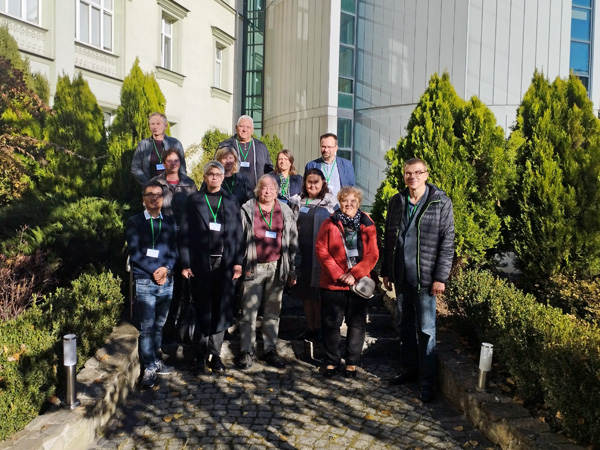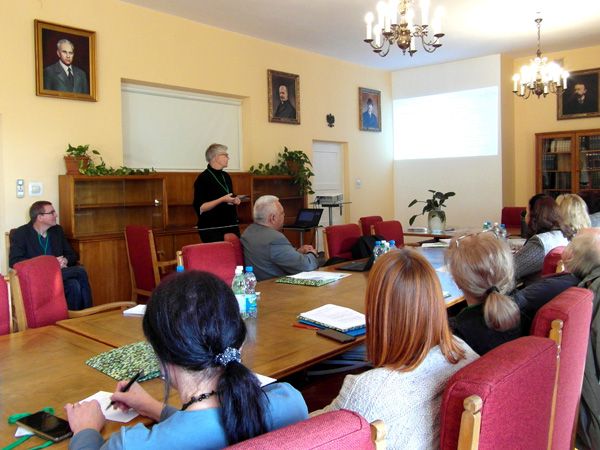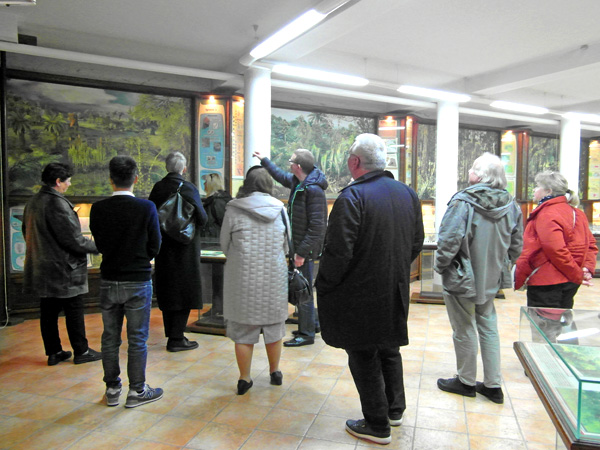13th workshop of the NECLIME working group on palynology at IB PAS
On October 23–26, our Institute hosted the "13th workshop of the NECLIME working group on palynology". NECLIME ("Research Network on Cenozoic Climate and Ecosystems") is an open international network of scientists working on the evolution of climate and ecosystems of continental Eurasia in the Cenozoic, currently comprising about 150 members from 39 countries. The main tasks of the NECLIME working group on palynology are the identification of fossil palynomorphs (pollen grains, plant spores, and microremains of algae and fungi), including the taxonomy of indicator palynomorphs, determining their botanical relationships, climatic and environmental requirements, and issues related to their taphonomy. Data from palynological studies constitute the basis for multi-aspect palaeoclimatic and paleoecological analyses. Two scientists from our Institute, Dr. Elżbieta Worobiec and Dr. Grzegorz Worobiec, who organized the meeting of the working group, have been actively participating in the activities of the NECLIME network since 2003. This year's NECLIME workshop was the second one organized by IB PAS since the establishment of the network in 1999; the previous one ("2nd workshop of the working group on taxonomy of Neogene palynomorphs") took place in 2011.
This year's workshop was attended by 16 scientists from 7 countries (Bulgaria, Czech Republic, Germany, Poland, Slovakia, Ukraine and Vietnam). Topics discussed included: biodiversity reflected in palynological assemblages, pollen grains and non-pollen palynomorphs (NPP) as complementary environmental proxies, LM/SEM studies of fossil and contemporary palynomorphs and the nearest living relatives (NLR) of Neogene and Palaeogene pollen palynomorphs and fungi, which turned out to be valuable palaeoclimate indicators. The workshop programme included lectures, discussions and practical training using a collection of palynological preparations, which is part of the National Biodiversity Collection of Recent and Fossil Organisms at W. Szafer Institute of Botany, Polish Academy of Sciences (NBC IB PAS), entered on the Polish Roadmap for Research Infrastructures. It is worth recalling that IB PAS has a unique collection of approx. 17,200 comparative palynological preparations, which constitutes a kind of "pollen herbarium".

Workshop participants in front of the IB PAS building.
Photo: Stanisław Nęcka.

Workshop participants at lectures.
Photo: Elżbieta Worobiec.

Visiting the exhibition "History of Polish Vegetation Landscapes".
Photo: Elżbieta Worobiec.






